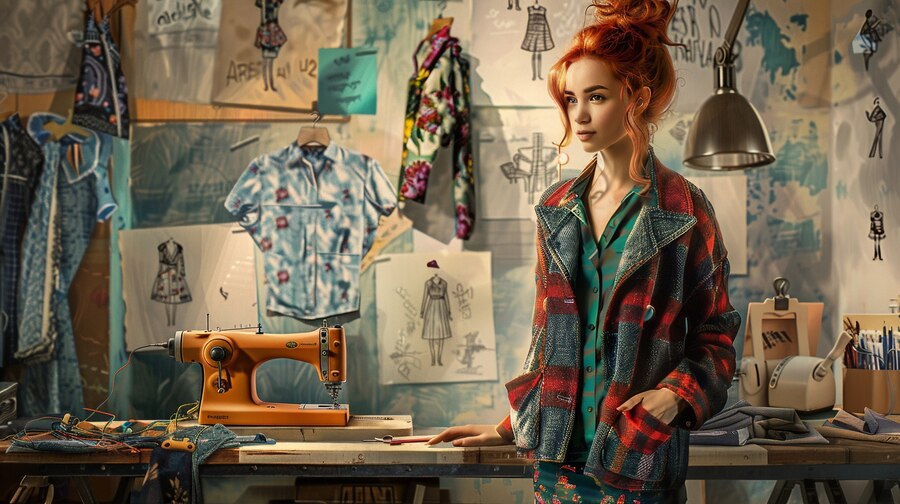Table of contents
- Coco Chanel: The Pioneer of Timeless Elegance
- Christian Dior: The Architect of Femininity
- Yves Saint Laurent: The Rebel with Style
- Gianni Versace: The Glamour King
- Alexander McQueen: The Dark Romantic
- Other Notable Icons in Fashion History
- The Lasting Impact of Iconic Fashion Designers
- FAQs About Iconic Fashion Designers
Fashion is more than just clothes—it’s a powerful expression of identity, culture, and creativity. Over the decades, numerous visionaries have shaped the landscape of style, leaving behind unforgettable legacies. These iconic fashion designers didn’t just follow trends—they set them, influencing generations of artists, celebrities, and everyday people.
In this article, we dive deep into the history of iconic fashion, exploring the designers who revolutionized style and whose influence continues to shape what we wear today.
Coco Chanel: The Pioneer of Timeless Elegance
No discussion about iconic fashion is complete without mentioning Gabrielle “Coco” Chanel. Emerging in the early 20th century, Chanel transformed women’s wardrobes by introducing comfortable, simple silhouettes that defied the corseted fashion of the time.
Her most enduring contributions include:
- The little black dress (LBD)
- The Chanel No. 5 perfume
- Tweed suits
- The use of jersey fabric in high fashion
Chanel’s legacy lives on in the brand’s continued commitment to elegant minimalism and timeless design.
Christian Dior: The Architect of Femininity
Christian Dior redefined women’s fashion post-World War II with his revolutionary “New Look” in 1947. Characterized by nipped waists, full skirts, and soft shoulders, his designs celebrated ultra-femininity at a time when the world was recovering from the war’s austerity.
Highlights of Dior’s impact:
- Restoration of Paris as the fashion capital
- Influence on 1950s and 1960s silhouettes
- Dior’s continued relevance through successors like Yves Saint Laurent and Maria Grazia Chiuri
His name remains synonymous with French luxury and iconic fashion.
Yves Saint Laurent: The Rebel with Style
Yves Saint Laurent, a protégé of Dior, brought modernity and edginess to haute couture. He popularized:
- Le Smoking tuxedo for women
- Ready-to-wear luxury fashion
- Incorporation of global and street culture into high fashion
YSL’s designs broke barriers of gender and race, proving that iconic fashion could also be provocative and progressive.
Gianni Versace: The Glamour King
Gianni Versace’s bold, sensual, and extravagant designs brought Italian fashion to global fame in the 1980s and 90s. Known for mixing luxury with pop culture, he dressed celebrities like Madonna, Elton John, and Princess Diana.
Versace’s legacy includes:
- Pioneering the “supermodel” era
- Celebrating body positivity and empowerment
- Creating fashion as performance art
His sister Donatella continues to uphold his vision, ensuring the iconic fashion brand remains powerful and provocative.
Alexander McQueen: The Dark Romantic
British designer Alexander McQueen captivated the world with his theatrical runway shows and deeply emotional designs. His work blended beauty with the grotesque, combining historical references, gothic romance, and cutting-edge tailoring.
Legacy highlights:
- Championing craftsmanship and storytelling
- Bold experimentation with digital and technological fashion
- Influencing a new generation of avant-garde designers
His tragic death in 2010 left a profound void, but his iconic fashion house continues to thrive under Sarah Burton and beyond.
Other Notable Icons in Fashion History
While the designers above had monumental impacts, many others deserve recognition for their contributions to iconic fashion:
- Karl Lagerfeld (Chanel, Fendi): Reinvented classic brands for the modern era
- Giorgio Armani: Master of understated luxury and tailored power suits
- Jean Paul Gaultier: Known for gender-bending and theatrical fashion
- Vivienne Westwood: The queen of punk and political couture
- Ralph Lauren: Creator of aspirational American lifestyle fashion
The Lasting Impact of Iconic Fashion Designers
What makes these designers truly iconic isn’t just their success—it’s the enduring influence of their vision. Their designs, philosophies, and branding shaped more than just wardrobes—they shaped cultures and movements.
Even decades later, the world of iconic fashion continues to pay homage to these trailblazers through revivals, retrospectives, and the work of contemporary designers who build upon their foundations.
Whether it’s a Chanel jacket, a Dior silhouette, or a McQueen statement piece, these designs continue to inspire awe—and set the standard for excellence in the ever-evolving fashion world.
FAQs About Iconic Fashion Designers

An iconic fashion designer is someone whose work transcends trends, influences generations, and leaves a lasting cultural legacy.
Coco Chanel is often cited as the most influential due to her timeless contributions that revolutionized women’s fashion.
Haute couture refers to custom, hand-made pieces for private clients, while ready-to-wear (prêt-à-porter) is produced in standard sizes for retail.
Coco Chanel popularized the little black dress in the 1920s as a versatile and elegant wardrobe staple.
Modern designers often reinterpret classic pieces, uphold traditional craftsmanship, and stay true to the core values and aesthetics of the original brand.





